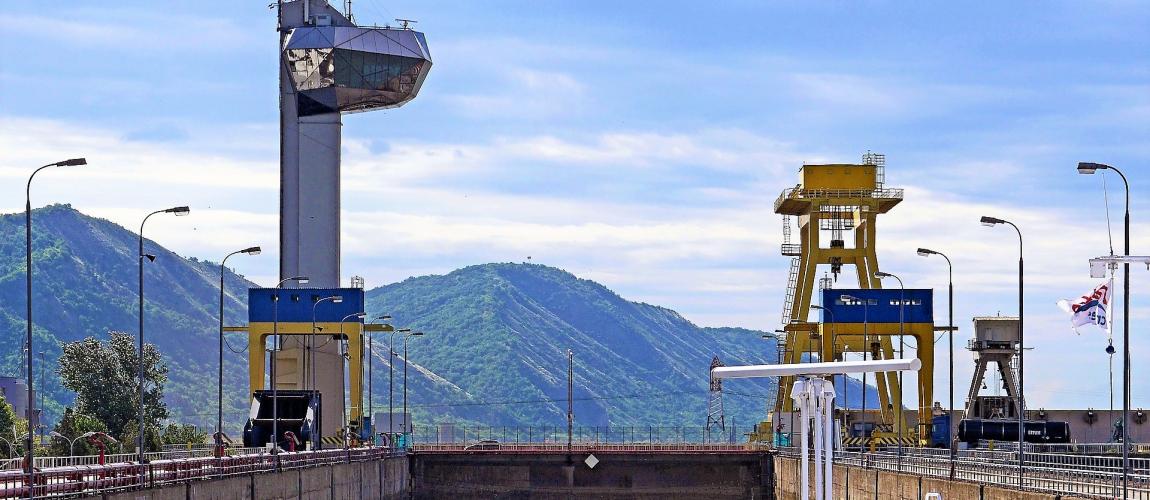PPI Project Summary: Romania Bucharest - Concession Agreement for Water and Sanitation Services

Photo Credit: Image by Erich Westendarp from Pixabay
Private Participation in Infrastructure (PPI) Project Database Project Summary (ID 2704): On March 29, 2000, the municipal government of Bucharest, Romania (Bucharest Municipality), granted a 25-year build-rehabilitate-operate-transfer concession for the city’s water and wastewater services to the water management firm Apa Nova Bucureşti (Concessionaire), a subsidiary of Veolia Water. The concession covers the treatment and distribution of potable water and sanitation services. In 2000 Bucharest had some 2 million inhabitants. Potable water for the city came from two Water Treatment Plants: Arcuda (745.000 cubic meters/day) and Rosu (520.000 cubic meters/day). At the time the concession was awarded the Bucharest sewer network was approximately 2,500 km long. Prior to 2000 the water infrastructure of Bucharest had been managed by municipal operator Regia Generala de Apa Bucureşti (RGAB). RGAB was transformed into joint stock company Apa Nova Bucureşti in 2000. That same year French Veolia Environnement obtained an 83.69% stake in Apa Nova Bucureşti following an open competitive tender. Three pre-qualified international operators submitted bids for the concession. The winning offer was selected based on a single criterion: the lowest real terms weighted average tariff applicable during the whole concession period. Veolia Water's offer came in some 30 percent below the next lowest bid, which was submitted by International Water, and about 70 percent below the offer of Suez Lyonnaise. Veolia contributed US$ 35 million in equity to Apa Nova Bucureşti's capital. According to the concession contract the municipality retains ownership of all infrastructure and also retains the power of veto on certain decisions. Apa Nova Bucureşti committed itself to meet a set of objectives in water quality, network extensions, customer management, incident response time, etc. within a fixed time-frame. Apa Nova Bucureşti is free to choose the resource (investment & organizations) for reaching these goals. The biggest infrastructure investments can be co-financed by Bucharest Municipality together with the Concessionaire and are subject to negotiations on tariff. The concession agreement stipulates that some US$ 1000 million are to be invested in upgrading the existing systems and improving service over the lifetime of the concession. In the first five years of the contract Apa Nova Bucureşti reported investing some US$136 million (Euro 126 million) to modernize the Rosu and Arcuda water plants, rehabilitate various parts of the existing network and start construction of a new water treatment plant in Crivina. Tariffs are set from bid values (with indexation: ordinary adjustments), levels of services attainment and periodic and extraordinary adjustments. The concession contract stipulates that Apa Nova Bucureşti may not increase tariffs by more than 30% during the entire time of the contract. In 2002 the Crivina water plant received funding from the European Bank for Reconstruction and Development (EBRD) in the form of a Euro 75 million (US$ 66 million) senior corporate loan granted to Apa Nova Bucureşti. In November 2005 the EBRD offered a further Euro 10 million (US$ 12 million) annuity type loan to Bucharest Municipality to finance the Glina Wastewater Treatment Plant. The loan was complementary to a Euro 25 million (US$30 million) sovereign loan from European Investment Bank (EIB) and a Euro 69 million ($84 million) grant from the European Union’s Instrument for Structured Policies for Pre-Accession (ISPA). At the end of 2005 Apa Nova Bucureşti was producing some 454.9 million cubic meters of potable water per year. Network waste had been reduced from 250 million cubic meters in 2000 to 150 million cubic meters in 2005. For more information on this project on the PPPRC website go to Water and Sanitation PPPs.
Updated:
Related Content
Water & Sanitation PPPs
Type of ResourceWater Sector Regulation
Type of ResourceUtility Restructuring, Corporatization, Decentralization, and Performance Contracts
Type of ResourceWater and Sanitation Agreements
Type of ResourceSmall Scale Water Projects - Rural and Peri-Urban
Type of ResourcePPPs in Irrigation
Type of ResourceTheft / Non-Technical Losses (Water and Electricity)
Type of ResourceWater & Sanitation PPP Toolkits
Type of ResourceCase Studies and Lessons Learned - Water
Type of ResourceGender & Water and Sanitation Projects
Type of Resource
Additional Resources
Contracting Tools for Non-Revenue Water Reduction
Type of ResourceRight Block TitleTable of ContentRight Block DescriptionWater and Sanitation Concession / BOT / DBFO
Type of Resource